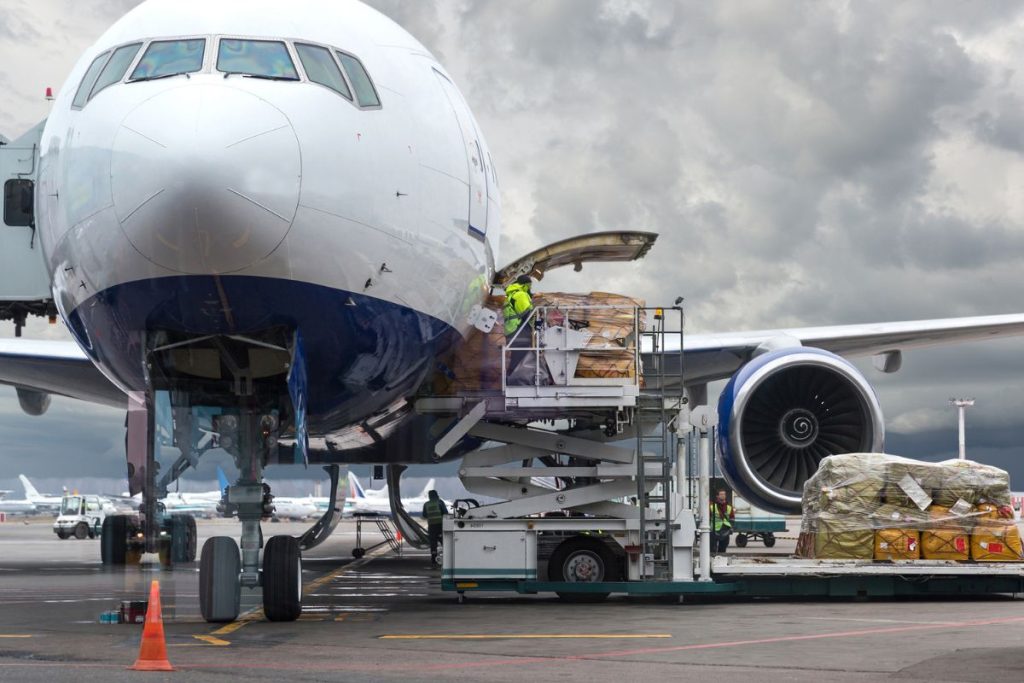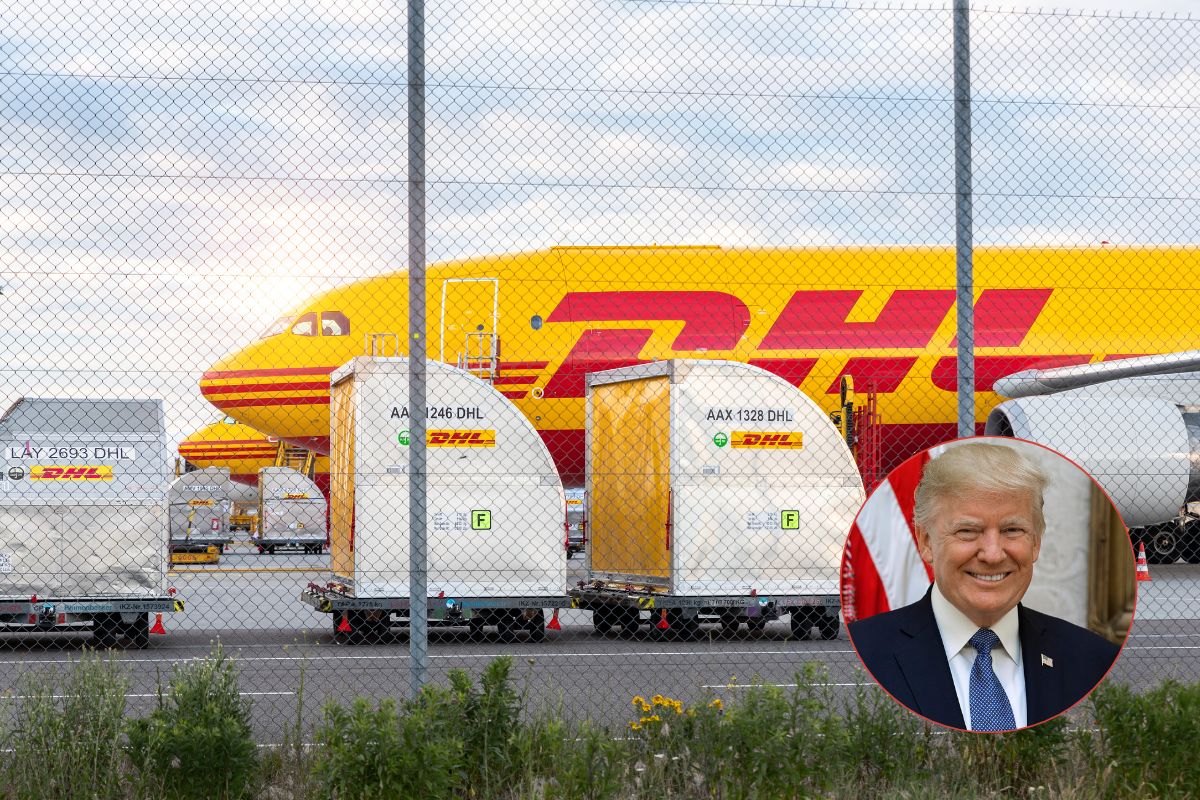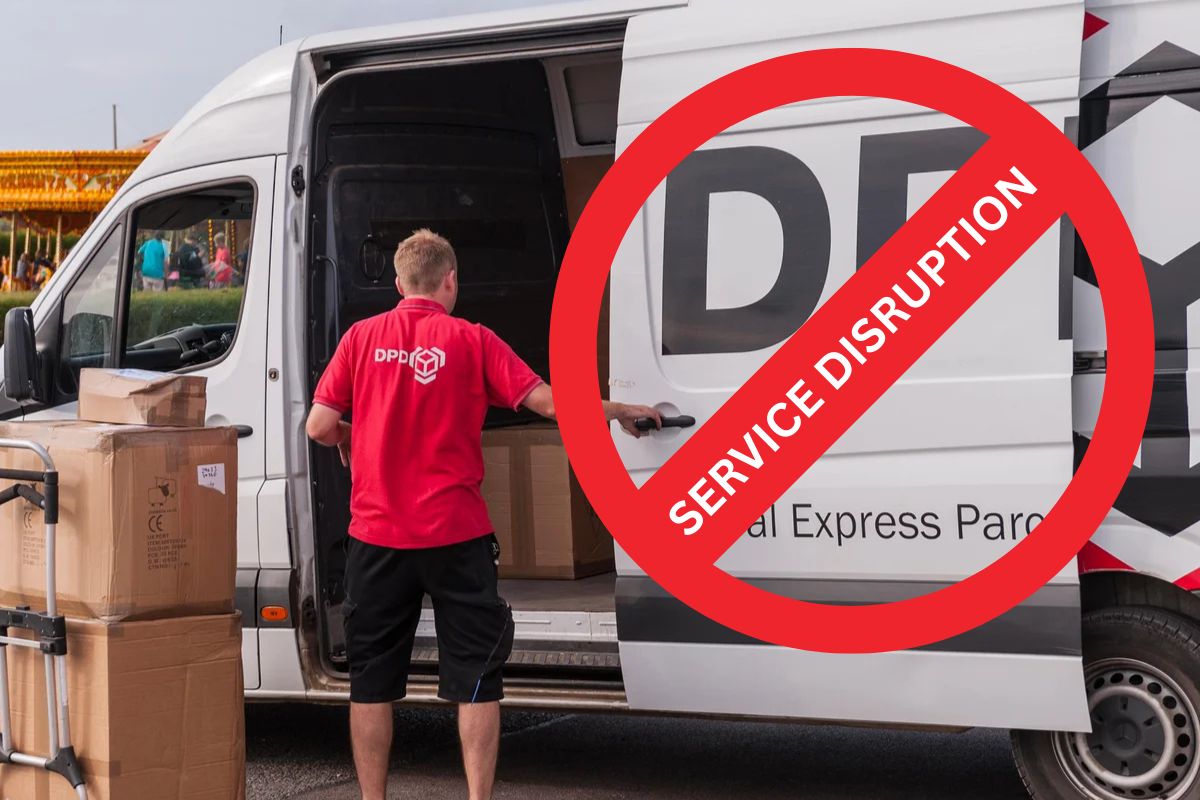Royal Mail, DHL, and postal services across Europe have pulled the plug on US deliveries this week, as Donald Trump’s decision to scrap a key tax exemption threatens to upend international e-commerce and leave UK businesses scrambling for alternatives.
The mass suspension, affecting everything from eBay sales to family gifts, comes just days before Friday’s deadline when Trump’s executive order eliminating the “de minimis” exemption takes effect – ending a system that allowed packages worth $800 or less to enter America duty-free.
The $64 Billion Loophole That’s About to Disappear
The de minimis exemption, buried in the 1930 Tariff Act, has quietly become one of the most important pieces of international trade infrastructure most people have never heard of.
Last year alone, around 1.4 billion packages containing goods worth $64.6 billion entered the US under this exemption – that’s over 4 million packages every single day.
More than half of these shipments originated from China, fueling the explosive growth of ultra-cheap shopping apps like Temu and Shein that have built entire business models around flooding American consumers with $3 dresses and £1 gadgets that somehow arrive tariff-free.
But Trump’s crackdown isn’t just targeting Chinese fast fashion. UK businesses exporting low-value goods will now face a 10% tariff, while EU companies get hit with a 15% levy – costs that will inevitably be passed on to American customers or absorbed by already-squeezed small businesses.
European Postal Services Hit the Panic Button on US Deliveries
Rather than risk packages getting caught in customs limbo when the new rules kick in, major postal operators have simply stopped accepting US-bound parcels entirely.
Royal Mail suspended shipments from Tuesday, joined by Germany’s Deutsche Post (which owns DHL), France’s La Poste, Italy’s Poste Italiane, Spain’s Correos, and postal services in Belgium, Sweden, and Denmark.
The coordination suggests this isn’t just European postal services being overly cautious – it’s a recognition that the logistics of implementing Trump’s tariff system are so complex that even major international carriers can’t figure out how to comply in time.
DHL summed up the industry’s confusion bluntly: “Key questions remain, particularly regarding who will have to pay the tariffs and how, what additional data will be required, and how data will be transmitted to US Customs.”
When one of the world’s largest logistics companies admits they don’t understand how the new system works, you know the implementation has been less than smooth.
UK Businesses Face Double Whammy
For UK entrepreneurs selling on Amazon, eBay, or Etsy, the timing couldn’t be worse.
Not only are they losing access to their shipping options right as the busy autumn selling season approaches, but they’re also facing the prospect of either absorbing new 10% tariffs or passing them on to price-sensitive American customers.
The suspension hits particularly hard for small businesses that rely on Royal Mail’s affordable international services to compete with larger companies that can negotiate better rates with private couriers.
Many will now be forced to switch to more expensive alternatives like UPS or FedEx – assuming they can afford the significantly higher shipping costs.
Royal Mail has promised a new “US Postal Delivered Duties Paid” service launching Thursday, but it comes with a catch: a 50p handling fee per parcel on top of existing postage costs.
For businesses already operating on thin margins, even small additional fees can make the difference between profit and loss.
The Gift Exemption That’s Already Causing Headaches
While gifts under $100 will remain tariff-free, postal services are warning that packages will face enhanced scrutiny to prevent commercial shipments from masquerading as personal gifts.
This means longer processing times and potential delays even for legitimate family parcels.
The exemption also creates a bureaucratic nightmare for postal workers who now need to verify whether a package qualifies as a genuine gift rather than a commercial shipment – a distinction that’s far from clear-cut when someone sells a £50 item to a friend in America.
Customs officials will presumably need to develop new procedures for distinguishing between a grandmother sending birthday presents and a business trying to dodge tariffs by marking everything as gifts.
Given the volume involved – over 4 million packages daily – the potential for delays and confusion is enormous.
International Shipping in Disarray
The suspension extends far beyond Europe, with postal services in Singapore, India, and Australia also halting US shipments.
This represents a coordinated retreat by the international postal system in the face of regulatory changes they simply aren’t prepared to handle.
For American consumers accustomed to cheap international shipping, the reality check is likely to be swift and expensive.
Those $5 phone cases from AliExpress and £3 t-shirts from SHEIN are about to become significantly more expensive – if they’re available at all.
The irony isn’t lost that Trump’s “America First” trade policy is simultaneously making American consumers pay more for goods while disrupting the small businesses and individual sellers who’ve built livelihoods around international e-commerce.

A Temporary Suspension That Could Become Permanent
While postal services are calling these suspensions “temporary,” the complexity of implementing new tariff collection systems suggests normal service won’t resume quickly.
Royal Mail’s new system, for instance, requires completely different customs documentation and fee structures – changes that took months to develop and may still face teething problems.
The bigger question is whether international postal services will decide that serving the American market simply isn’t worth the regulatory hassle and additional costs.
If smaller postal operators conclude that the compliance burden outweighs the revenue, American consumers could find their international shipping options permanently reduced.
This could mark the beginning of a broader fragmentation of international e-commerce, where trade disputes and regulatory complexity force companies to choose between markets rather than serving global customers seamlessly.
The End of Cheap International Shopping
For UK consumers who’ve grown accustomed to ordering cheap electronics from Chinese retailers or sending affordable gifts to American relatives, this represents a fundamental shift in how international commerce works.
The de minimis exemption was never intended to facilitate the modern reality of millions of individual consumers ordering low-value goods from overseas sellers.
It was designed for occasional small shipments, not the industrial-scale micro-commerce that companies like Temu and Shein have built fortunes on.
Trump’s crackdown effectively forces international e-commerce back toward higher-value transactions that can absorb tariff costs, potentially killing the business model that’s made ultra-cheap international shopping possible.
The fallout from this week’s postal suspensions is just the beginning.
As American consumers discover that their £2 gadgets now cost £4 including tariffs and handling fees, the real test will be whether the appetite for bargain international shopping survives the sticker shock of trade war reality.
Want to know more about delivery companies and how they’re performing?
Check out our courier information section or browse our retailer guides to see which delivery companies your favourite shops are using.




